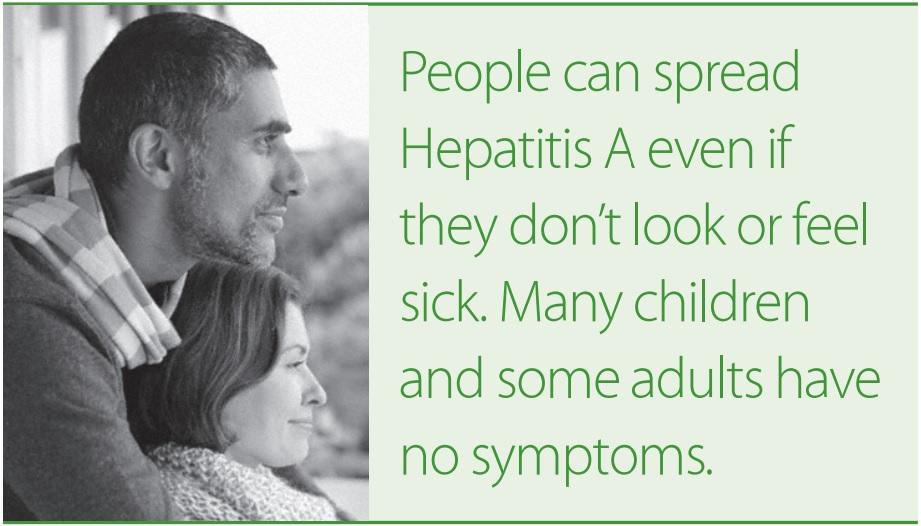
Section Branding
Header Content
Hepatitis A Signs and Symptoms
Primary Content

Hepatitis A is a virus that causes liver inflammation. Symptoms include fever, fatigue, loss of appetite, nausea, vomiting, abdominal pain, dark urine, clay-colored stool, joint pain, and yellowing of the skin or eyes (jaundice).
Symptoms can last from several weeks to several months, and usually resolve within 2 to 6 months. Not everyone has severe symptoms, so some infections go undetected, even though these individuals are contagious. That's why the CDC says it's difficult to determine the number of Hepatitis A infections in the United States each year.
Hepatitis A is spread from contact with objects, food, or drinks contaminated by feces or stool of someone infected. Even exposure to microscopic amounts of infected feces is enough to spread infection. The foods and drinks most likely to be infected include fruits, vegetables, shellfish, ice, and water.
The Hepatitis A virus is very hardy, able to survive when exposed to stomach acid, and can live outside the body for months. It can not survive high temperatures. Boiling or cooking for at least 1 minute at 185°F (85°C) kills it. So does chlorination of water. Freezing does not kill it.
Other types of hepatitis viruses, including Hepatitis B and C , can cause similar symptoms. People with Hepatitis A usually get better without any specific treatment, but it can cause liver failure and death-- more common in those over 50 or those with other hepatitis infections. Hepatitis B and C can be more difficult for the body to clear. Some people remain chronically infected.

Source: CDC
The best way to prevent Hepatitis A is to be vaccinated: two doses at least 6 months apart. The Hepatitis A vaccine is safe and effective. Protection begins within 2 to 4 weeks after the first vaccination. The second injection ensures long term protection. This vaccine has been available since 1995. There is also a vaccination for Hepatitis B; but there is no vaccination yet available against Hepatitis C.
Risk factors for Hepatitis A infection include travel to or living in developing countries where Hepatitis A is common. It is also more common in men who have sex with other men. Other risk factors include using illegal drugs, having hemophilia or other clotting-factor disorders, living with someone with Hepatitis A, and having oral-anal sexual contact with someone with Hepatitis A.
If you have symptoms or risk factors, or fear you may have been exposed to Hepatitis A, talk to your doctor. Hepatitis A can be diagnosed with A blood test. If you have been recently exposed (within the last two weeks) and have not been vaccinated, you may benefit from an immune globulin injection or immediate hepatitis A vaccination.






